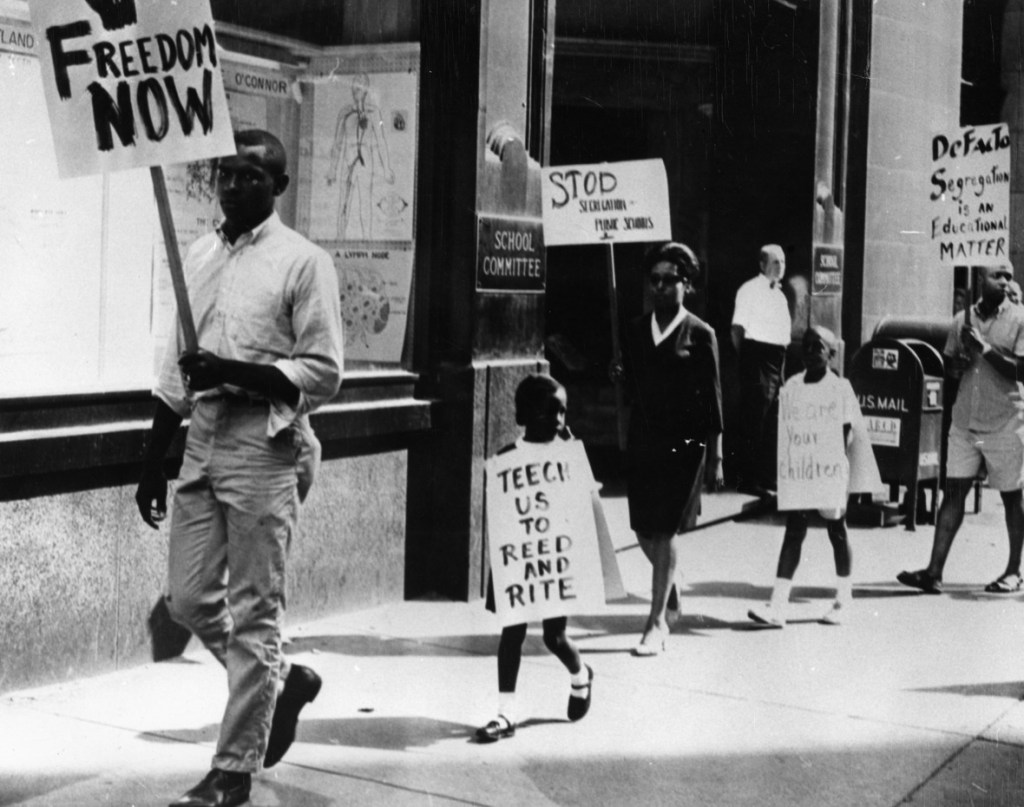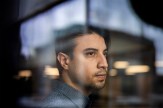Panel discussion will explore ‘our original sin’ of segregation in Boston

When the Rev. Stephen Kendrick talks about “our original sin,” he isn’t referring to the biblical story of Adam and Eve.
Rather, he’s referring to the great injustice of school segregation in America.
“Our tortured history, our original sin, ultimately, is our chronic inability to step up and just simply let children be educated together,” he says.
School segregation, and the fight for racial equality in the school system from the 19th century to the present, is the subject of a panel talk at 4:30 p.m. Wednesday at Blackman Auditorium on Northeastern’s Boston campus.
Part of the university’s Myra Kraft Open Classroom series, “Racial Inequality and Struggle for Equity in the Boston Public School System,” is free, open to the public and available via live stream.
The goal of the panel is to help educate attendees and viewers and encourage conversation, with an eye toward the future of policymaking.
“Schools are a major portion of any city’s responsibility to its citizens, and schools in Boston have been the subject of debate and contention for decades,” says Ted Landsmark, distinguished professor of public policy at Northeastern. “The need for understanding the past in order to plan differently for the future is paramount.”
Moderated by Landsmark and Balazs Szelenyi, associate teaching professor, the panel will feature three speakers who will illuminate the issue of segregation in Boston public schools across three centuries.
Lindsa McIntyre, secondary superintendent at Boston Public Schools, will speak about contemporary issues involving race in Boston schools. Kendrick will speak about the case Roberts v. City of Boston (1850); and Jim Vrabel, author of “A People’s History of the New Boston,” will speak about the decisions that led to violence in the busing crisis in the 1970s, and what could have been done to prevent it.
For his part, Vrabel hopes his portion of the event will help dispel misconceptions about the busing crisis in Boston. Court-mandated busing began in 1974, prompting racial tensions, protests and violence, something Vrabel says people seem to think was a “foregone conclusion.”
“I think most people are familiar with the general story of what happened in Boston in the attempt to desegregate the schools,” he says. “But they’ve seen it more from a cinematic point of view, they’ve seen scenes of the demonstrations and the violence and, and all that that occurred.”
Vrabel looks forward to discussing the details of the policy decisions that took place behind the scenes. This, he hopes, will give people a better, fuller understanding of where things went wrong.
“I want to show them that there were ways to kind of avoid all the conflict that happened, and maybe have a much more positive result,” he says. “A lot of the pain and violence could have been avoided if different policy decisions had been made, or not made.”
Kendrick, meanwhile, will speak about a buried segregation court case that he and his son discovered in 2004.
At the time, Kendrick had just moved to Boston to become the minister of First Church Boston, Unitarian Universalist. Kendrick was interested in local history, so when he discovered the story of a 7-year-old Boston girl named Sarah on a visit to the Civil Rights Museum in Memphis, Tennessee, he was compelled to learn more.
Sarah, he discovered, was the subject of a court case that would have a far-reaching impact. She had to walk past several white schools to get to a Black school each morning, so her father, a printer, sued the city of Boston on her behalf.
Roberts v. City of Boston made it to the Massachusetts Supreme Judicial Court, where the family ultimately lost—Sarah was denied access to white schools. The case would set the precedent for “separate but equal” in the United States, established by the Supreme Court in Plessy v. Ferguson (1896).
“Of course, one thing we’ve learned in American history, from the 1840s to today, is every time people are made to be separate, it’s never equal,” Kendrick says.
When Kendrick discovered the case, it was just a footnote in history. He and his son, Paul, did countless hours of detective work, sorting through old newspapers to discover information about the story that even historians had missed. They published “Sarah’s Long Walk: The Free Blacks of Boston and How their Struggle of Equality Changed America” in 2004.
“I think it is ultimately an encouraging story, an important story,” Kendrick says. “And it’s an American story, as well as the Boston story.”
For media inquiries, please contact media@northeastern.edu.






